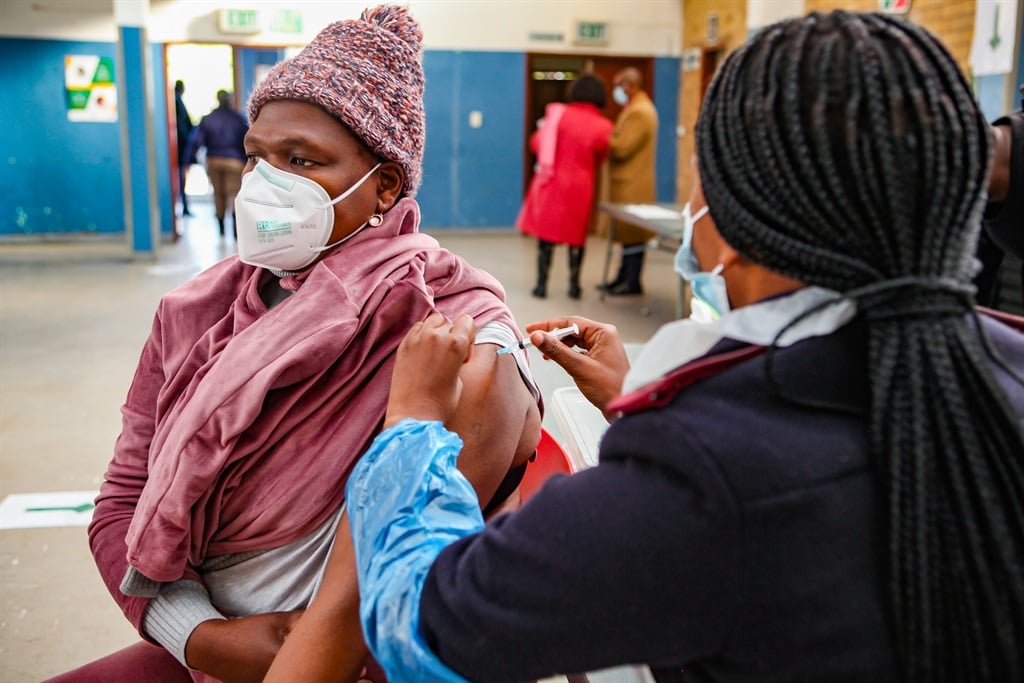
- The health department and private sector are investigating low vaccination turnout of over 60s.
- Up 70% of no-shows registered at certain sites, the department says.
- The Johnson & Johnson jab will be used to vaccinate sectoral employees.
The national health department and the private sector are trying to get to the bottom of why registrations on the Electronic Vaccination Data System (EVDS) have slowed down.
Dr Nicholas Crisp, deputy director-general in the national Department of Health - who is also in charge of the EVDS, says registrations have slowed significantly across the country in the last few weeks.
"Registrations have slowed down a lot across the country. What we are seeing is that people who have registered, even insured people, are not coming for their vaccinations even when they get called (in). There are up to 70% no-shows at some sites.
"We don't know why. But I can speculate that people are now afraid to go and stand in queues because there is a lot of disease out there at the moment. We don't know why people are not coming to the vaccination (sites)," Crisp said.
As most of the no-shows are happening at private vaccination sites, the sector was doing research to figure out why people are not showing up.
"The private sector, in particular mostly in the insured populations, are experiencing a lot of no-shows. They are busy with a piece of research to understand the dynamics of what's happening. We are all concerned about why it's like that. It slows down the whole programme and that's another reason we had to increase the age categories. We are running out of people to vaccinate."
Last week, acting Health Minister Mmamoloko Kubayi-Ngubane said registration of people aged between 50 and 59 years will begin on 1 July. If there is enough vaccine supply, those in their 40s be able to register in August.
The Health Department aims to vaccinate 4.8 million people in the 50s cohort.
Sectoral vaccinations
Last week, workers in the education sector started being vaccinating. So far, more than 200 000 workers in the sector have been vaccinated. Crisp said they expect all sectoral vaccinations to go ahead without a hitch.
"All the sectoral vaccinations will go easily. They are an organised group. We know who they are before they come. We have the database so it's very quick. We work with the parent department and they do all the preparatory work from their side."
For sectoral vaccinations, the one-dose Johnson & Johnson (J&J) vaccine will be used. The general population will continue to receive the two-dose Pfizer vaccine.
In the last week, the government has received 1.2 million doses of the J&J vaccine and 1.4 million of Pfizer from the Covax facility.
"We are using the J&J vaccine in the sectoral programmes purely because they all expire on the 11th of August. So we need to use them quickly. And the quickest way to use them is through the groups that are organised. We know who they are, we have their ID numbers and they have already given consent through their employer."
From 5 July, the government will start vaccinating people employed in the police service and security personnel.
Crisp warned against people advocating against incarcerated people getting the vaccine.
"The public must be careful of jumping to conclusions on inmates. We cannot discriminate against them. Our Constitution gives the same rights to people even if they are incarcerated."
He said the overcrowded conditions in prison were a breeding ground for a big outbreak.
He said:
Did you know you can comment on this article? Subscribe to News24 and add your voice to the conversation.
